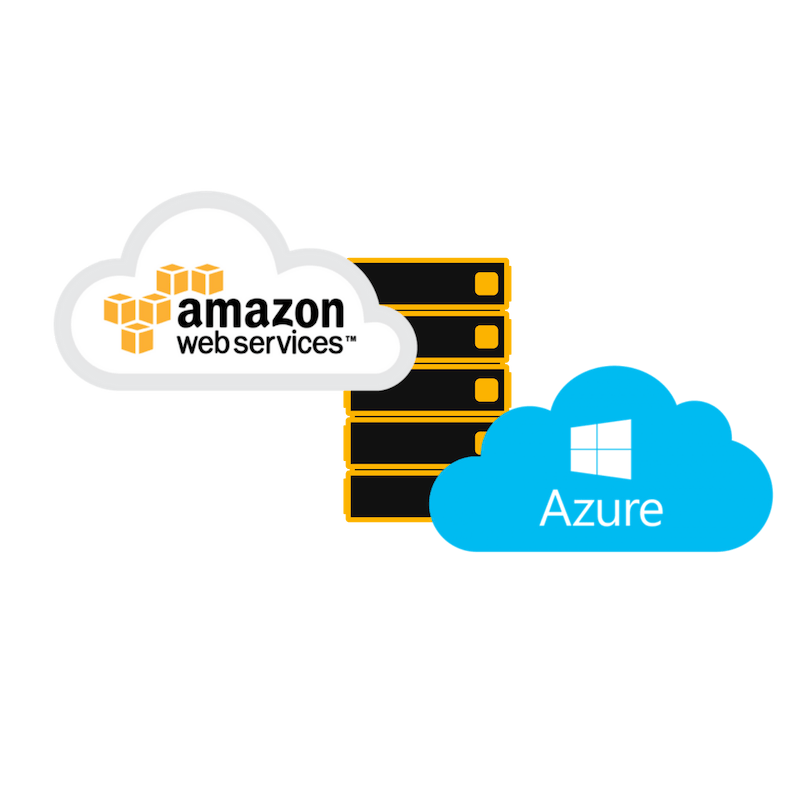There’s a battle for leadership in cloud computing, and the two main players are AWS and Azure.
With the cloud computing market reaching a size of $130 billion, the cloud is more significant than ever. Businesses worldwide are seeing the productivity and scaling benefits cloud computing offers.
You’ve probably heard of the Azure vs AWS debate. They are two of the most popular products. But which one should you pick?
Keep reading to learn the pros and cons of Azure and AWS, and which one of them is right for your business.
What Do AWS and Azure Services Offer?
How did we ever get things done?
In the past whenever we wanted to deploy applications we needed to spin up our own hardware, implement it, and manage it in-house. Cloud computing has changed everything by letting us deploy infrastructure in minutes.
AWS and Azure both offer a range of basic services that vary slightly with each other. They provide what is known as Infrastructure as a Service (IaaS) and Platform as a Service (PaaS).
Amazon services can put into the following categories:
- Content delivery and storage
- Compute
- Network
- Database
Azure has a similar but slightly different offering:
- Computer
- Performance
- Network
- Databases / data management
Both options allow you to configure your infrastructure in whatever way you need.
AWS allows you to pay as you go. This option will enable you to scale up or down whenever you need to.
You also have a pay as you go option with Azure, but it will cost more if you go down this route.
Product Deployment
Moving to the cloud is both complicated and straightforward. There are a lot of systems you can set up, but once configured deployment should be easy.
When it comes to deploying web applications, AWS has a rich feature set that offers more flexibility than Azure.
Azure has made its mark with Microsoft developers. But, AWS has earned its market share by providing open source integrations. These tools provide a seamless deployment pipeline.
AWS also provides better DevOps support than Azure. On top of being able to deploy application updates automatically, AWS provides automatic scaling based on your usage. This scaling means no more downtime for using too many resources.
AWS also has a location advantage when deployed. Amazon has more data centers across the globe. You get a faster application when you deploy it closer to your target audience.
You are also covered if you are targeting a specific demographic. AWS will allow you to pick your data center location.
Azure doesn’t have the same scale as AWS. Additionally, requesting a specific data center is more complicated. You need to put in a call to Microsoft when you want to make this change.
Hybrid Cloud Support
Not every company wants to move entirely to the cloud. Internal policies are government regulations may prevent them from making the jump. A hybrid cloud will allow you to combine the cloud and in-house applications to get the best of both worlds.
For this Azure has a leg up on AWS. Because of their previous customer base, Microsoft knew a hybrid offering was vital to bring in a portion of their customers. They built Azure with this in mind.
AWS has partnered with VMWare to work on their hybrid support, but they have some work to do to catch up with Azure.
Options for Government Business
Companies and startups aren’t the only customers for cloud services. Governments are making a move to update their infrastructure and move to the cloud.
Because of government requirements, Amazon and Microsoft have developed special programs for governments. Your cloud is isolated from companies so you won’t share any bandwidth or space with regular business users.
AWS and Azure have obtained all the certifications required for this business. They follow both government and business regulations. But, AWS has been around longer which has given them a head start in the government market.
Licensing
When finding a service excellent licensing is essential, so you don’t spend more than you need to. Most businesses want something as simple as possible. This simplicity makes things predictable and flexible.
AWS offers the simpler licensing of the two. They adopt a pickup and go model which allows you to move your application whenever you chose to. You won’t have any fees if you decide to move since AWS is mostly based on open source.
Microsoft also offers mobility for software. Many Microsoft services are paid, so this is vital to ensure you aren’t wasting money if you move in the future. But, not all their applications offer this.
You will need to check the applications you use so you know what to expect.
Enterprise Support
One thing an enterprise service needs when moving providers is proper support. Both AWS and Amazon offer support options. But, Microsoft has a history of providing excelling support for its enterprise customers.
Microsoft has invested heavily into developer tools and over time. One of Microsoft’s core products is the .NET framework. This framework gives developers a framework to develop Windows applications.
Many businesses have spent years in the Microsoft ecosystem and run all their operations on it.
This support means Azure can provide seamless integration for all Microsoft customers.
Azure vs AWS: Final Thoughts
There isn’t an easy answer in the Azure vs AWS debate. It ultimately comes down to what you need. Talk with your development team to get your requirements down so you can make the best choice for your company.
Both options have free trials. You can test out the capabilities of each service before you make your final decision.
Do you need help getting an application deployed? We can help with the process. Contact us today to see what we can do to help migrate to the cloud.




